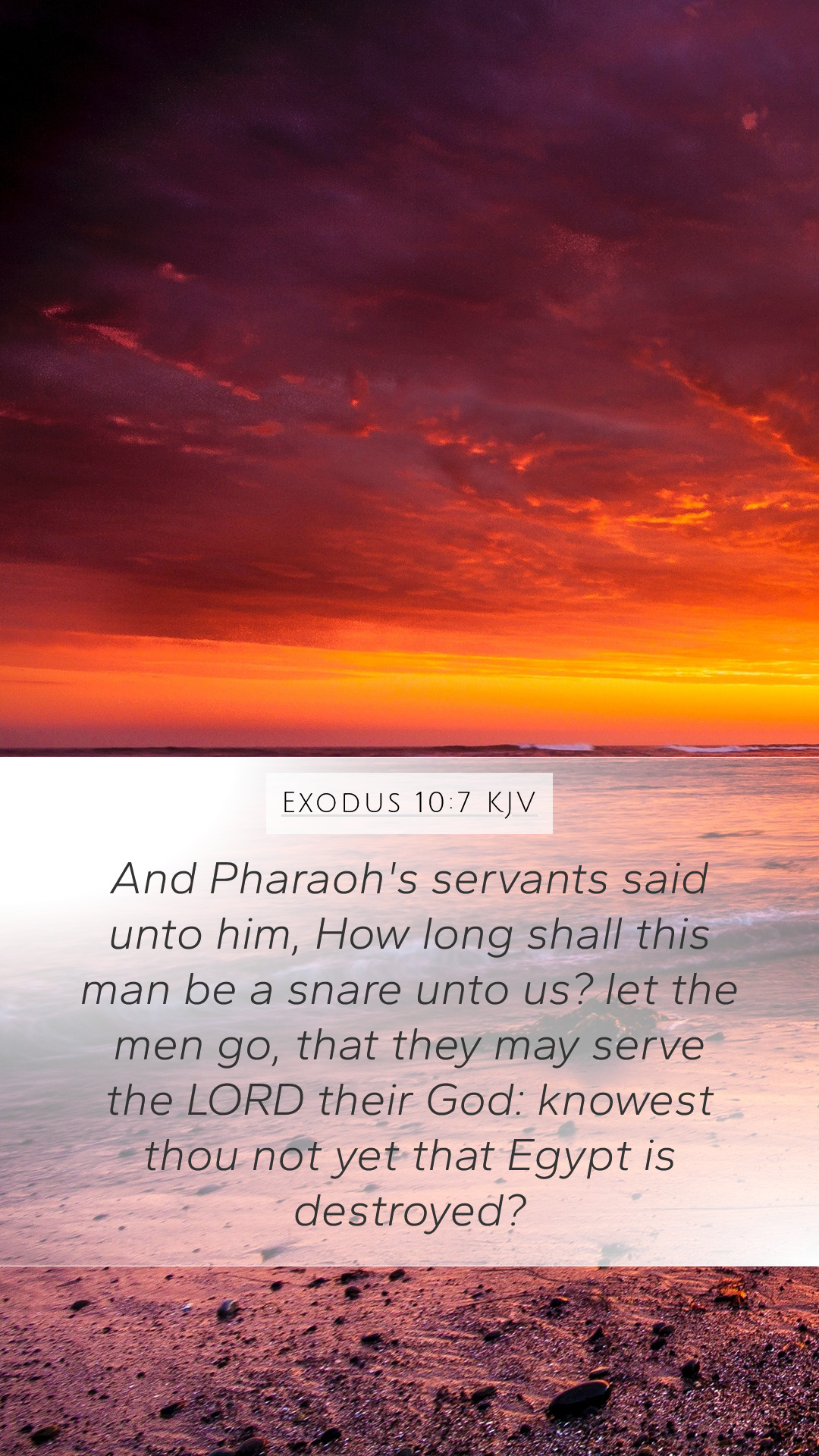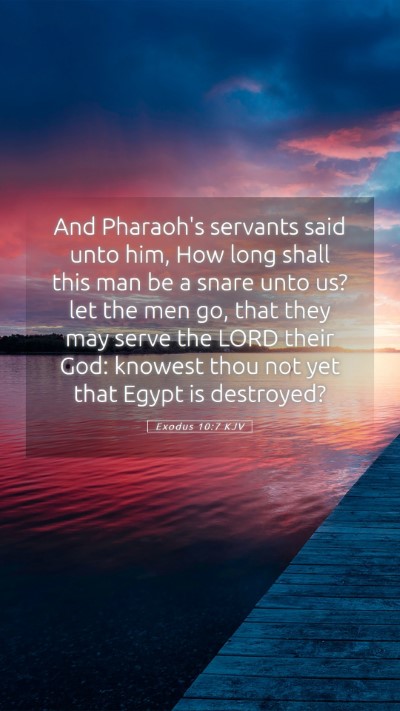Bible Verse Explanation: Exodus 10:7
Verse: “And Pharaoh's servants said unto him, How long shall this man be a snare unto us? Let the men go, that they may serve the Lord their God: knowest thou not yet that Egypt is destroyed?”
This verse comes during the narrative of the plagues of Egypt, where Pharaoh’s heart was hardened, and despite the calamities befalling Egypt, he resisted letting the Israelites go. The servants of Pharaoh express a moment of clarity, recognizing the severe consequences of their situation.
Understanding Exodus 10:7
In exploring the meaning of this Bible verse, we can draw insights from several public domain commentaries:
- Matthew Henry: Henry emphasizes the stubbornness of Pharaoh and how his courtiers begin to realize the folly of opposing God's command. They see Moses as a snare, not simply a nuisance, underscoring the peril they face due to Pharaoh's defiance.
- Albert Barnes: Barnes points out that Pharaoh's officials express their desperation and the increasing severity of their plights. The term "snare" indicates that they feel trapped, and they appeal to Pharaoh for action that would avert further disaster.
- Adam Clarke: Clarke elaborates on the dynamics within Pharaoh's court, suggesting that even those closest to Pharaoh began to recognize the futility of resisting God. They understood that yielding to Moses would align them with divine will and potentially save Egypt from complete destruction.
Key Themes in Exodus 10:7
- Recognition of Desperation: The servants acknowledge the dire state of Egypt, highlighting the monumental consequences of disobedience to God.
- Human Resistance to Divine Will: The verse illustrates the struggle between human authority and divine command, showcasing Pharaoh's hardened heart against the obvious dangers surrounding him.
- Power of God’s Command: The requests of Pharaoh's servants signify that despite Pharaoh’s resistance, God’s power is ultimately undeniable, and His plans will prevail.
Theological Implications
This verse serves as a reminder of the importance of heeding divine instruction and the potential perils of stubbornness. The recognition by Pharaoh's servants may also symbolize moments in which individuals begin to see the truth during times of hardship.
Biblical Cross References
- Exodus 5:1-2: Moses and Aaron approach Pharaoh, introducing God's demand for the Israelites to be freed.
- Exodus 7:13: God hardens Pharaoh's heart, illustrating the struggle between earthly power and divine authority.
- Exodus 9:14-16: God's messages to Pharaoh reveal the purpose of the plagues: to show His power and proclaim His name.
Applications of Exodus 10:7 in Life
For contemporary readers, this verse reminds us of the consequences of ignoring divine guidance. It poses reflective questions about our own stubbornness in the face of clear truth and urges us to seek God's will actively.
In Bible study groups or during online Bible study sessions, this verse can serve as a starting point for discussions about obedience, the consequences of sin, and the importance of listening to God's messengers.
Conclusion
Exodus 10:7 serves as a pivotal point in the narrative of the Exodus, illustrating the growing tension between Pharaoh's authority and God's unwavering command. Through thoughtful Bible verse explanations and interpretations from various commentators, we gain deeper biblical insights that contribute to our overall understanding of Scripture.
In-depth Bible verse analysis encourages believers to apply these ancient truths to modern life, fostering a richer relationship with God and understanding of His Word.


